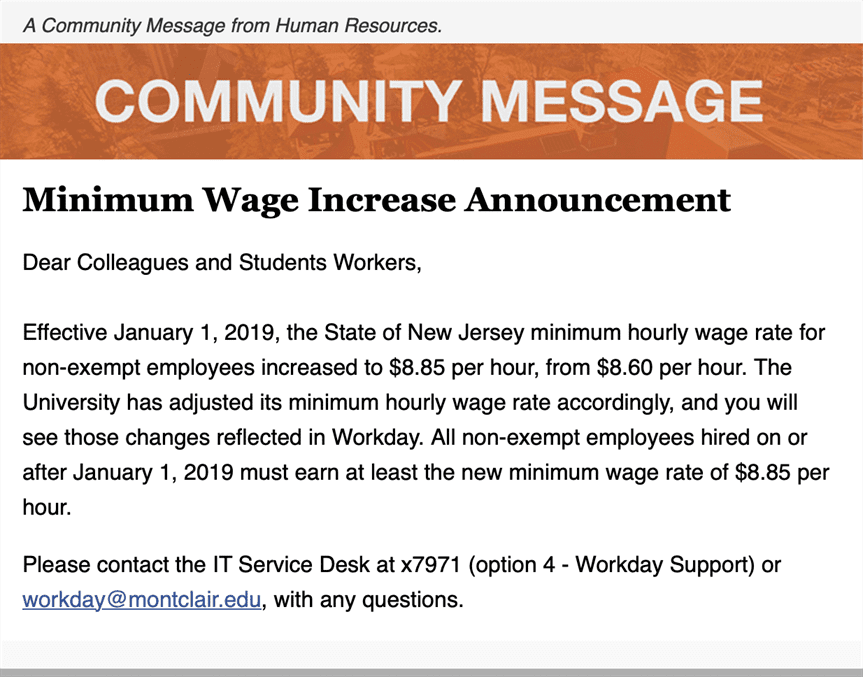On a Friday afternoon, many students at Montclair State University drop their books and study materials and head over to the Willowbrook Mall to make a few extra bucks in the food court. At the end of their shifts, they are eager to receive their paychecks, but they are surprised to see their hourly wages have slightly increased.
On Jan. 1, New Jersey Gov. Phil Murphy gave a raise to thousands of workers in minimum wage jobs by increasing the hourly rate from $8.60 to $8.85. Those who work at minimum wage jobs, including college students, were very disappointed by the 25 cent increase after Murphy promised to raise it to $15 during his 2017 campaign for governor.
While many people affected by the increase are grateful for the raise, students at Montclair State believe they deserve more than just an additional quarter to their hourly pay.
In the past decade, the hourly minimum wage in New Jersey has risen by $1.70 an hour. This may not seem like a huge increase, but when you look at the steady progress, the Garden State has come a long way from its original rate of $7.15 per hour.
New Jersey still has one of the lowest minimum wage rates in the northeast, beating Delaware by a dime. For a state with such a high population of liberal figures and followers, it is shocking to see we are very behind compared to other states in the ultimate goal of raising the minimum wage to $15 per hour.
In reality, living off of $8.85 an hour while attending college makes it harder to achieve financial goals, including trying to make enough money to become self-reliant or even trying to get a head start on paying off student loans.
Full-time college students at Montclair State are required to take at least 12 credits each semester, which adds up to four classes. Students typically go to class for most of the days of the week, leaving only a few hours left to earn their paychecks and complete their assignments before the next day begins.

Montclair State University sent a message alerting students that the minimum wage has increased in New Jersey.
If a student works 20 hours each week, under the new minimum wage, they would only make $177, $5 more than they did previously. It is also a $45 difference, in comparison to college students working the same jobs in New York who make $11.10 an hour.
For students who still rely on their parents financially, it is a nice little promotion added to their bank accounts. For those who are struggling to become self-reliant, making less than $200 a week is barely enough to keep up with a car lease, food for the week and other basic necessities.
It is very unlikely that the politicians down in Trenton will agree on $15 per hour in the near future, but they need to think about the obstacles minimum wage workers have to go through to make a living. Not everyone has the availability to work over 20 hours a week while trying to balance their course work at the same time. It shouldn’t have to be a choice between a paycheck and a good GPA.
Those who are only able to get minimum wage jobs, including college students, deserve to make enough money to support themselves and pay for the resources they need without having to jeopardize their higher education.



